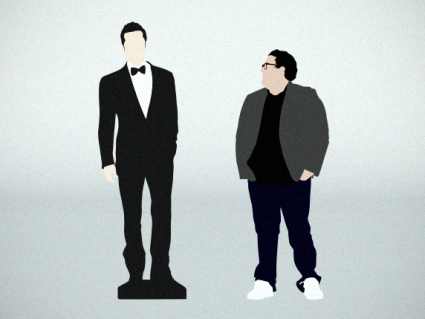
First thing in the morning, I check Twitter, only to have it list off for me all the ways I’ve already fallen behind. A colleague has released a new e-book. Two of my design heroes are announcing a collaborative project. One of my old college buddies has posted a video trailer for an upcoming online program, and she looks phenomenal, polished, charismatic, (I’m still in bed, bleary-eyed, and definitely not at my most telegenic.)
Am I really falling behind? Is anybody actually keeping score? Did any of these people post any of the updates with the intent of making me feel bad? Of course not. But if I’m not careful, it’s terribly easy to view my social media streams as a constant reminder of all the stuff I’m not doing, dreams I’m not fulfilling, and rooms I’ve failed to decorate in a Pinterest-worthy manner.
This isn’t a social media problem. It’s a comparison problem.
There isn’t a single thing about Twitter – or any of the other social media platforms I use – that’s designed to make me ask how I’m measuring up. That’s all me – an automatic, internal mechanism. It’s part ego (“But what does this say about me?”), part creative drive (“What more am I capable of?”), and part deep soul yearning (“How can I make an impact, leave a legacy, and matter?”).
And I know it’s not just me. I’ve spent the past year collaborating with leadership coach Tanya Geisler on researching how comparison works, what it costs us, and what it can teach us – and we’ve discovered that it runs rampant among just about every creative, growth-oriented person we know. In our comparison-soaked culture, it’s hard to avoid looking around at what other people are doing with their short time on earth, and slipping (often unconsciously) into “How am I stacking up?” mode. Here’s what we learned:
1. Don’t compare your insides to someone else’s outsides.
The first time I heard this excellent, if hard-to-implement, advice, I was suffering from a terrible case of envy. Some competitor or other had achieved an inspiring degree of success and I was complaining to a mentor about how unachievable it seemed to me. Her warning took me aback: Look, she told me. You have no idea what it took for them to get there. Don’t act like this was unearned, effortless, or pure dumb luck. And for Pete’s sake, don’t go thinking that because you read the press release, you have a single clue about what’s really going on behind the scenes.
2. You have no idea what it took for them to get there. Don’t act like this was unearned, effortless, or pure dumb luck.
She was absolutely right. I knew better, yet in the moment that I’d heard the news, I fell prey to reactive thinking and over-simplification. Because it’s much easier to look at someone “up there” and envy what they’ve got than it is to ask the tougher questions:
o What do they have that I wish I had?
o What do I admire about them? What are they modeling for me?
o What have they done to get where they are today?
o How does this relate to my own values?
When we reflect on these questions, we shift immediately out of comparison mode (that whole comparing-our-insides-to-their-outsides) and turn inwards, to face the heart of the matter: our own desires and fears.
Transform comparison into celebration
Admiration and envy are responses that point us toward what we value most. And when we become aware of what we value, we are much better positioned to create a life that’s richly satisfying.
Admiration and envy are responses that point us toward what we value most.
If you notice yourself admiring people who take creative risks, bring your full attention to the part of you that wants to dare more greatly. If you catch yourself envying the folks in your circles who are at ease with self-promotion, take some time to reflect on how you might share your triumphs in a way that feels totally YOU. Heck, if you’re obsessing over tennis players’ forearms, it could be a sign that you’re ready to revamp your fitness regime. You get the idea.
Use the Success of Others As a Mirror
Comparison can be a dark, stuck place, but only if you let it be. There’s gold to be found in your comparison habit, if you’re willing to look for it. The light we see in others can help us see our own – and appreciate it.
So the next time you catch yourself admiring or envying someone’s success, gifts, or particular brand of radiance – be it in a professional context, a personal one, or simply perusing magazine covers – take a moment to consider:
1. What qualities in them inspire me?
2. Where do I currently embody these qualities?
3. How might my expression of these qualities differ from theirs?
4. What can I learn from my desire to embody these qualities more fully?
Your Twitter feed may never look quite the same.
Article written by Lauren Bacon @laurenbacon
